Support strong Canadian climate journalism for 2025
Canada's National Observer sent reporter Natasha Bulowski to B.C.'s remote central coast for a special expedition this month. This is her third report on the trip. Read the first and second reports on the two-week marine debris cleanup expedition.
It was our last day of garbage picking, by necessity; even if we collected more trash, there would be nowhere to put it. The large catamaran tasked with transporting the more than 31 tons of debris was piled high with full bags. Styrofoam, plastic fishing gear and an estimated 19,000 plastic bottles took up every available inch of space on board.
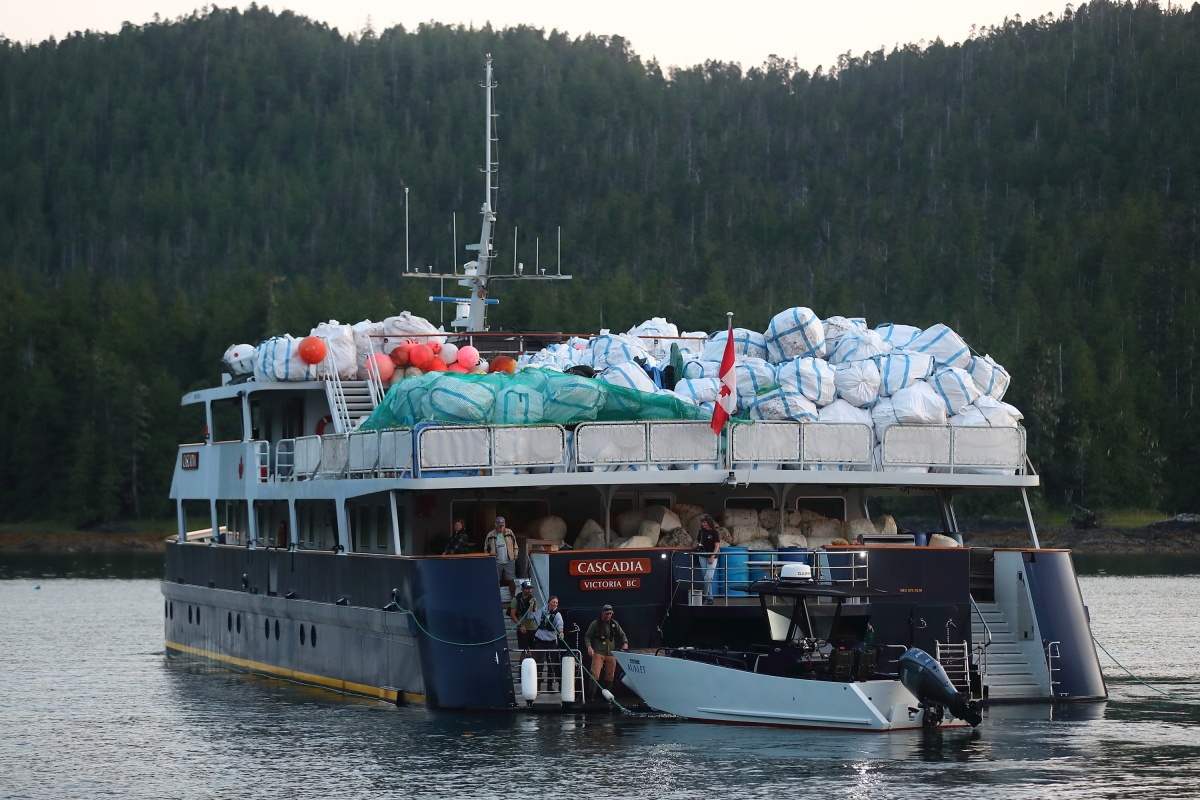
This mountain of plastic was the result of weeks of picking garbage off the coast of British Columbia. Heading back on our last day, we watched in awe as Dall’s porpoises rode the bow wave of our sailboat, the spray from each jump casting rainbows in the afternoon sun.
Our job was done, and as the Island Roamer started motoring towards Kitimat, it felt like the whole coast was celebrating with us.
After escorting us past the Anderson Islands, the porpoises darted away. However, they were quickly replaced by more than a dozen humpback whales, some diving nearby; others breaching far in the distance.
It was unforgettable, but these picturesque, blissful moments stand in sharp contrast to memories of remote beaches covered in tiny pieces of plastic, massive fishing nets that we couldn’t dislodge from under boulders — and the disconcerting knowledge that what washes up on the shoreline is only the tip of the iceberg.
In some spots, you’d grab a handful of sand and dirt to find more plastic than organic matter in your fist, the leftovers as the plastic broke down into ever-smaller and irrecoverable fragments. All you could do was grab the larger items and move on to the next cove.
But the crew’s sadness and frustration at these sights fuelled the cleanup effort. In just one day, they removed almost two tons of garbage from a bay — that's nearly two tons that would have gradually broken down into microplastics.
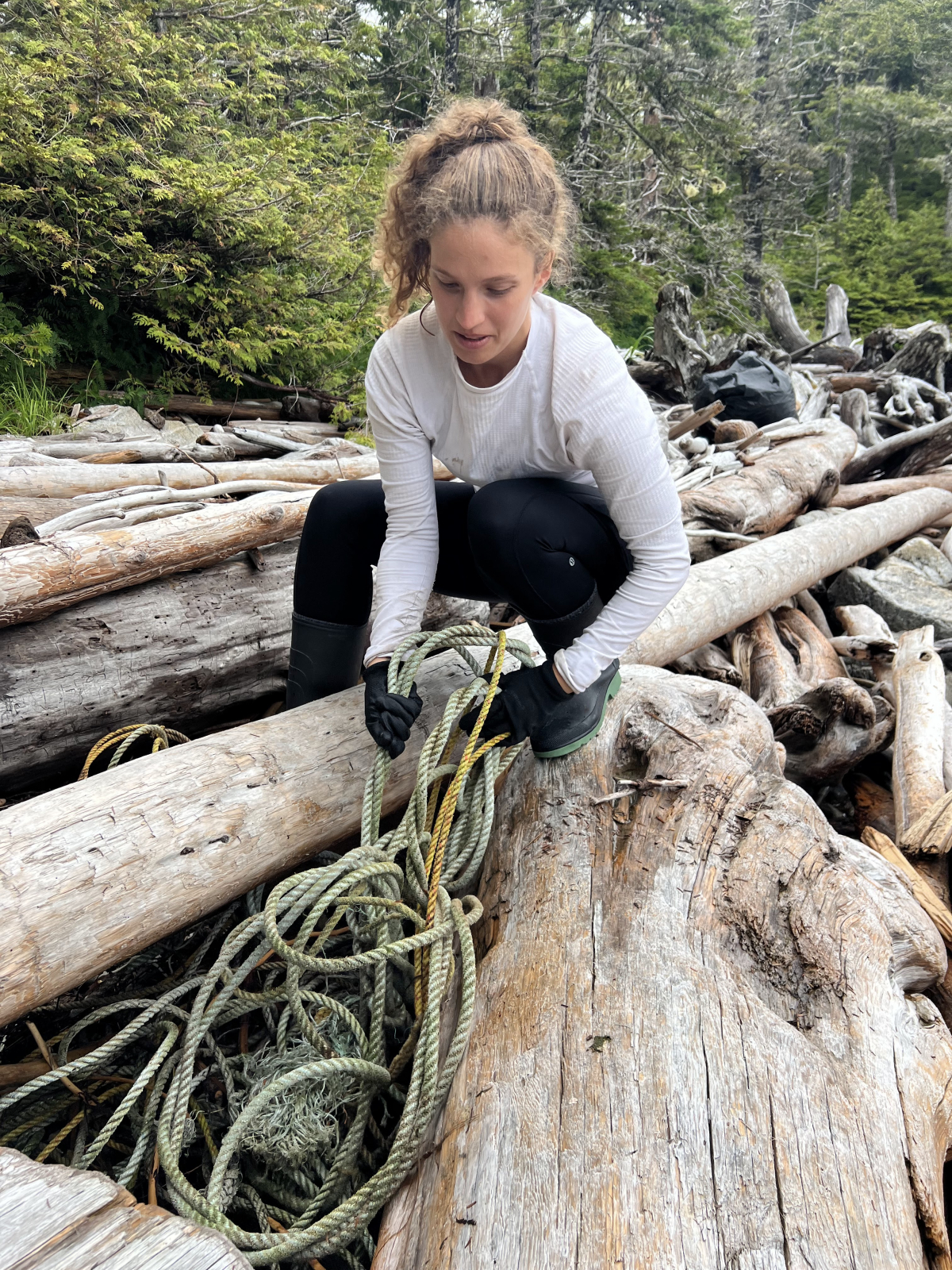
I reported on the third round of Plastics Treaty negotiations in Ottawa. I know the industry talking points. I know the amount of plastic being produced globally each year is expected to double by 2050. I know microplastics are in the water we drink, the air we breathe and the food we grow. I know fossil fuel companies see plastic as a new opportunity to make a profit at the expense of the planet.
But knowing these facts and seeing the impact on B.C.’s coast are two entirely different things. Walking across a beach made of microplastic is a powerful, disturbing experience — and the crew wishes policymakers and politicians could see it with their own eyes.
For two weeks, I got to leave Ottawa policy and politics behind. Although the extent of the plastic pollution exceeded my expectations, I’m returning to the capital full of hope after seeing the impact a small team of people can have.
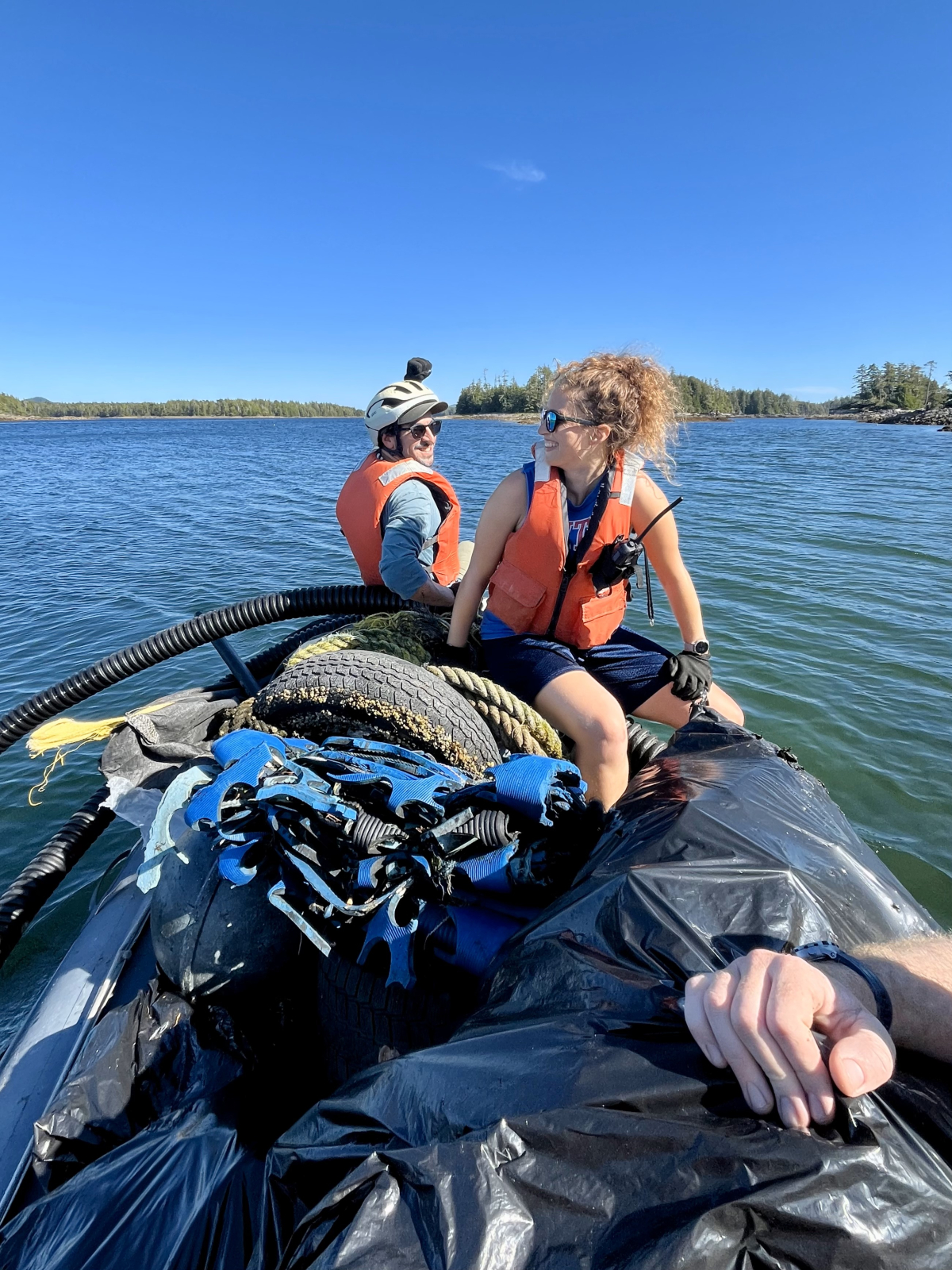
The mission on the ground was to clean up marine debris, but conversations on the Island Roamer frequently turned to addressing plastic pollution at the source, how to get the attention of politicians, international dynamics and a thirst for accountability from the fishing industry and large corporations.
It’s satisfying to physically clean up the coast and, until we stop producing so much plastic, we need to try and minimize the impact of what’s already swirling around in our oceans. But everyone on board talked about how shoreline cleanup is only one part of the solution to this daunting problem.
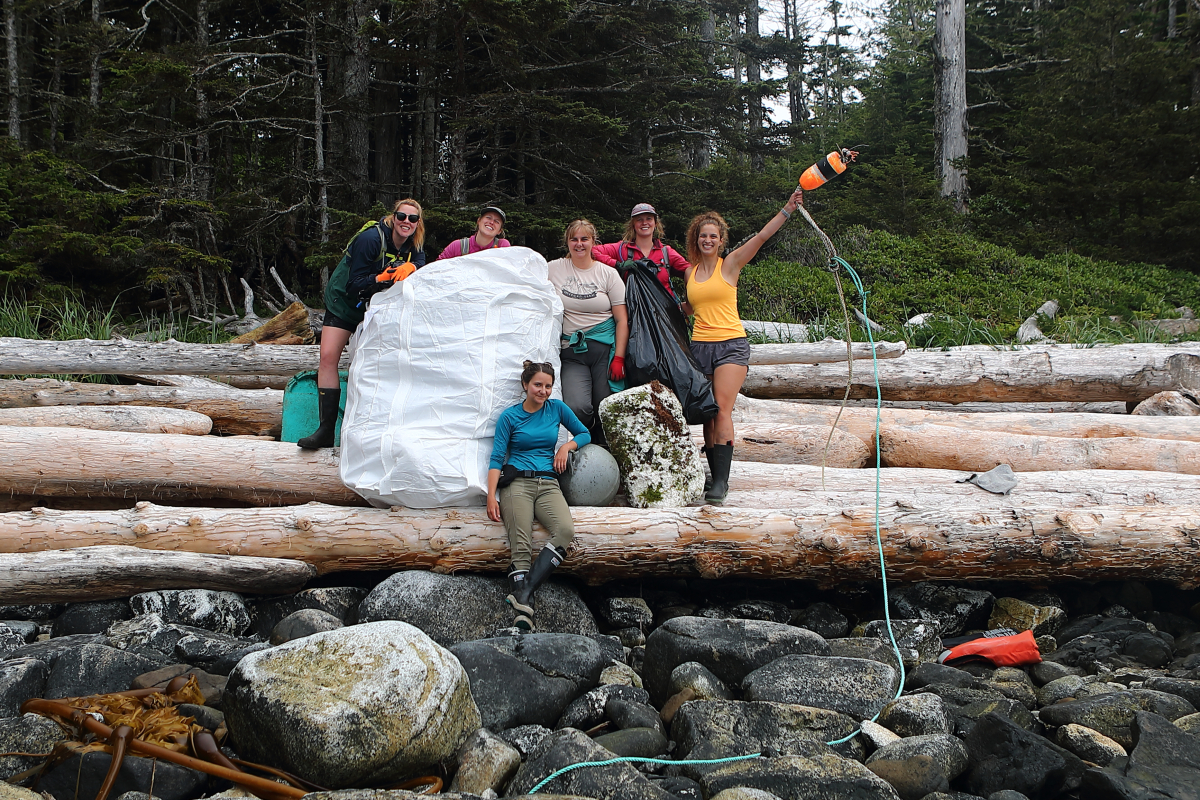
It takes a lot to move the dial on policy, particularly for an issue that transcends borders, but there is no shortage of passionate people doing good work on the ground and looking for ways to push for change. I know this because I just spent two weeks with some of them.
Natasha Bulowski / Local Journalism Initiative / Canada's National Observer

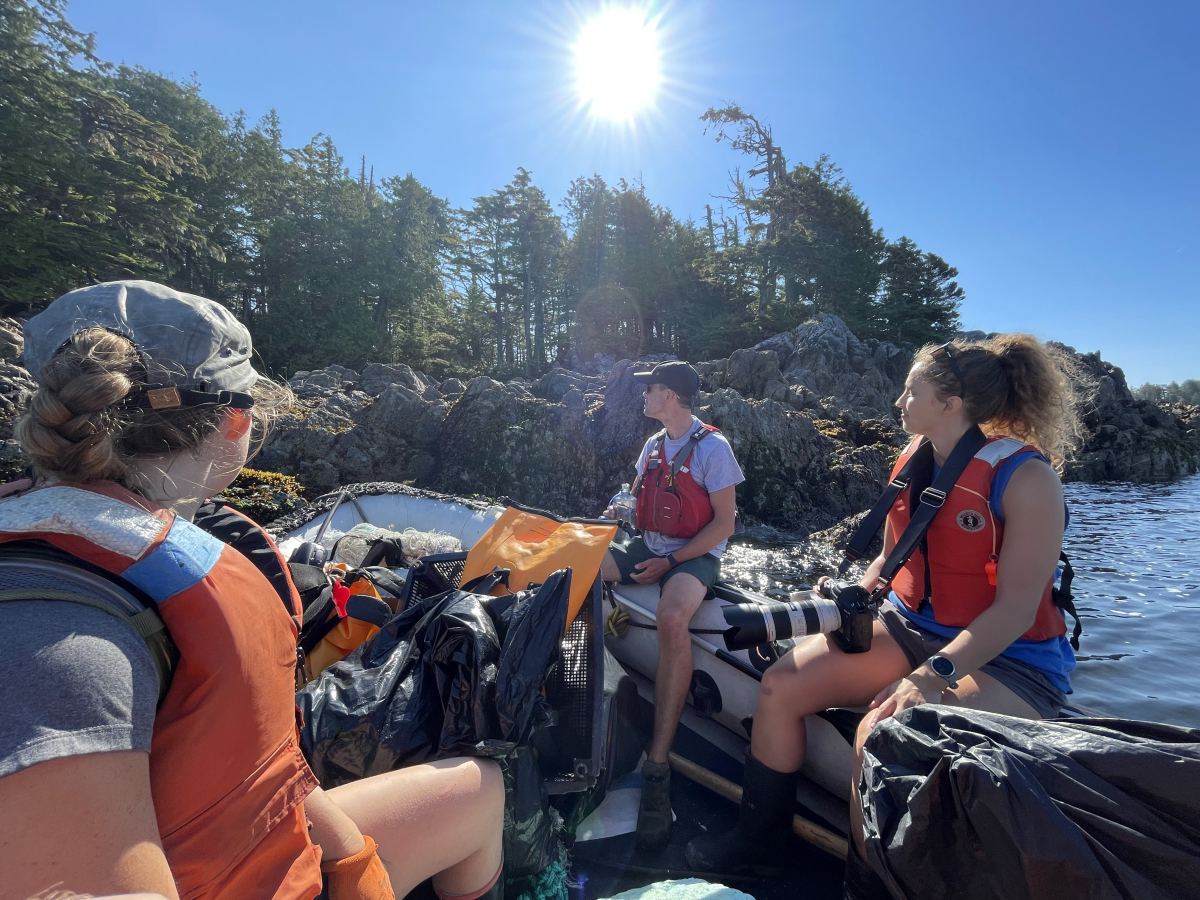

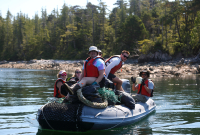
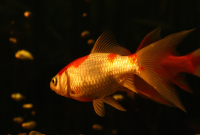
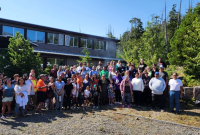
Comments
I walk with a cane so often am looking down and ahead to avoid a trip. What I notice now is the great increase in parking lots of deposed plastic in particular plastic toothpicks. Also wrappers and little items of I don't know what. Do we residents of the Prairies not realize our rain water washes these into a storm sewer or above ground drain and into a river which Keats to a bigger river and then mostly into Hudson Bay or tge MacKenzie River and into the Arctic Ocean. And on the break down and poison the people, fish wildlife and habitat. Apparently my breathing here in Alberta causes me to inhale micro plastics and tire particles which are now in my blood, in my brain.
As a senior I worry about our young, and this is tongue in cheek. Are they self embalming
It is really sad how the human race disregards what we are doing to the environment and planet as a whole, it's disheartening. Oil & gas industry spreads disinformation, if not lie about the impacts their industry has on this planet and place profits over what is good for the planet. We have a government that talks out of the side of their mouth about climate change, but continues to inject tax payers money into the oil & gas industry in a form of subsidies and fund more pipelines.
Plastics have become a serious problem, but the government does nothing and ignores the health hazards associated with it. People have become lazy and continue to litter than properly disposing or recycling bottles and containers.
They talk about setting up and living on another planet, and I can only think, why, so we can pollute and destroy yet another environment and planet.
On the bright side, we have groups of individuals that go out of their way to clean up the mess we leave everywhere and yet it can feel like a losing battle, as people don't care, and still continue their littering habits. It seems unless there are direct consequences, people won't change. Climate change is a good example, we know it's a problem, but some call it a hoax, while others acknowledge the problem, but do nothing themselves to help mitigate the issue or take time to put pressure on the governments to take action.